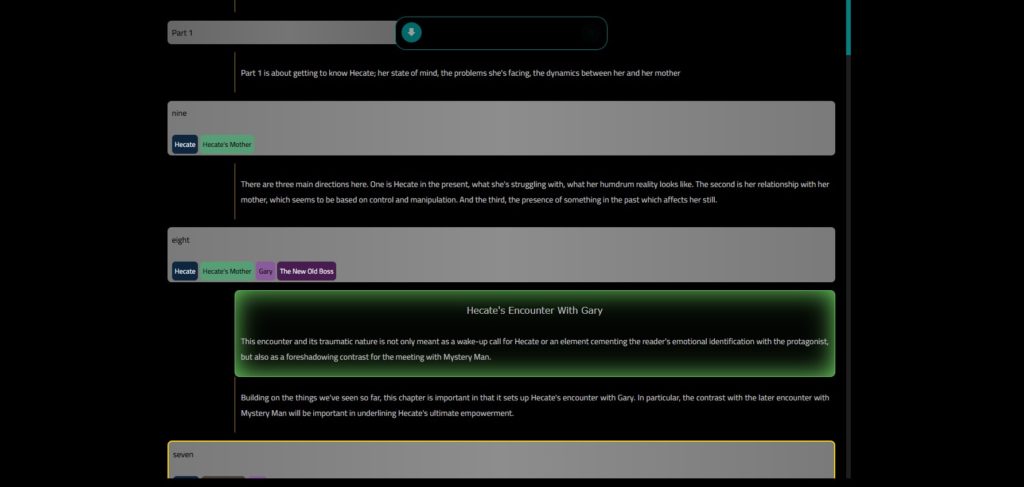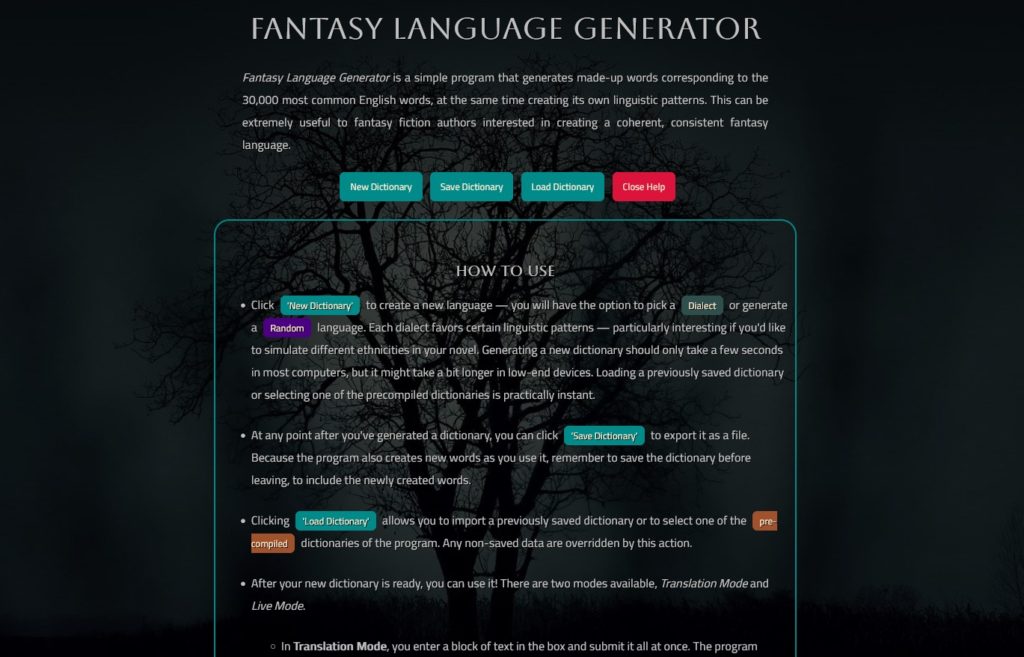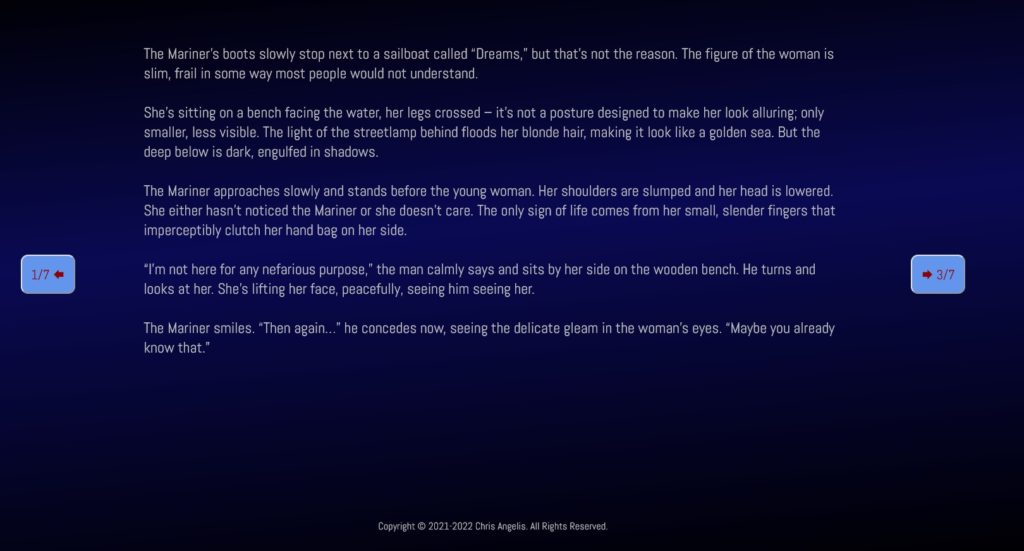There are fiction authors who need to plan every, single, detail in advance – they’re called “plotters”. Then there are writers who write by their seat of their pants – hence they’re called “pantsers”. In reality, most authors fall somewhere in-between. The truth is, we all need some degree of planning for most works (except perhaps stream-of-consciousness or heavily experimental). And so, we could all benefit from a story planning program.
As with everything I make – programs, books, or blog posts – the intended audience of Conceptualizer, my free story planning program, was first and foremost myself. That is, I started to make a story planner because I felt I could benefit from one. I’m certainly not a plotter (though not a pantser either), but I like to keep some sort of notes regarding what will happen when.
And so, perhaps ironically, this sort of selfishness can be very useful to you, too! Let’s take a look at Conceptualizer, what it does and how it works, and at the end of this post I’ll include a link for you so that you can try it for free.


